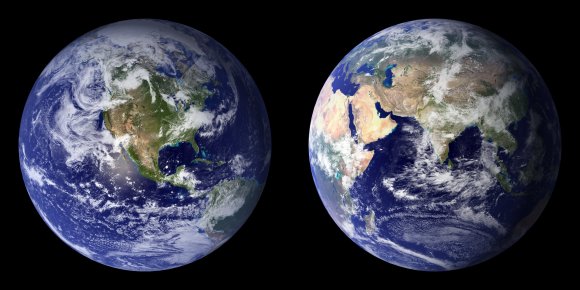
At the Wikimedia Foundation, our mission was born of a belief that everyone, everywhere, has something to contribute to our shared human understanding. We believe in a world that encourages and protects the open exchange of ideas and information, community and culture; where people of every country, language, and culture can freely collaborate without restriction; and where international cooperation leads to common understanding.
The new U.S. administration’s executive order on immigration is an affront to this vision. It impedes the efforts of our colleagues and communities who work together from around the world to make shared, open knowledge accessible to all. When our ability to come together across borders is restricted, the world is poorer for it.
Knowledge knows no borders. Our collective human wisdom has long been built through the exchange of ideas, from our first navigational knowledge of the seas to our ongoing exploration of the heavens. When one society has stumbled and slipped into ignorance, others have preserved our records and archives, and built upon them. Throughout the Early Middle Ages in Europe, scholars in Baghdad kept alive the writings of Greek philosophers. These meticulous studies, along with the discoveries of Persian and Arab mathematicians, would in turn help spark the intellectual renaissance of Europe.
Wikipedia is an example of what is possible when borders do not hinder the exchange of ideas. Today, Wikipedia contains more than 40 million articles across nearly 300 languages. It is built one person at a time, across continent and language. It is built through collaboration in person and in communities, at international gatherings of ordinary individuals from around the world. These collaborative efforts serve hundreds of millions of people every month, opening up opportunity and education to all.
The Wikimedia Foundation is headquartered in the U.S., where we have unique freedoms that are essential to supporting the Wikimedia projects. But our mission is global. We support communities and projects from every corner of the globe. Our staff and community members need to be able to move freely in order to support this global movement and foster the sharing of ideas and knowledge, no matter their country of origin.
We strongly urge the U.S. administration to withdraw the recent executive order restricting travel and immigration from certain nations, and closing the doors to many refugees. It threatens our freedoms of inquiry and exchange, and it infringes on the fundamental rights of our colleagues, our communities, and our families.
Although our individual memories may be short, the arc of history is long, and it unfurls in a continuous progression of openness. At the Wikimedia Foundation, we will continue to stand up for our values of open discourse and international cooperation. We join hands with everyone who does.
Katherine Maher, Executive Director
Wikimedia Foundation

Can you help us translate this article?
In order for this article to reach as many people as possible we would like your help. Can you translate this article to get the message out?
Start translation